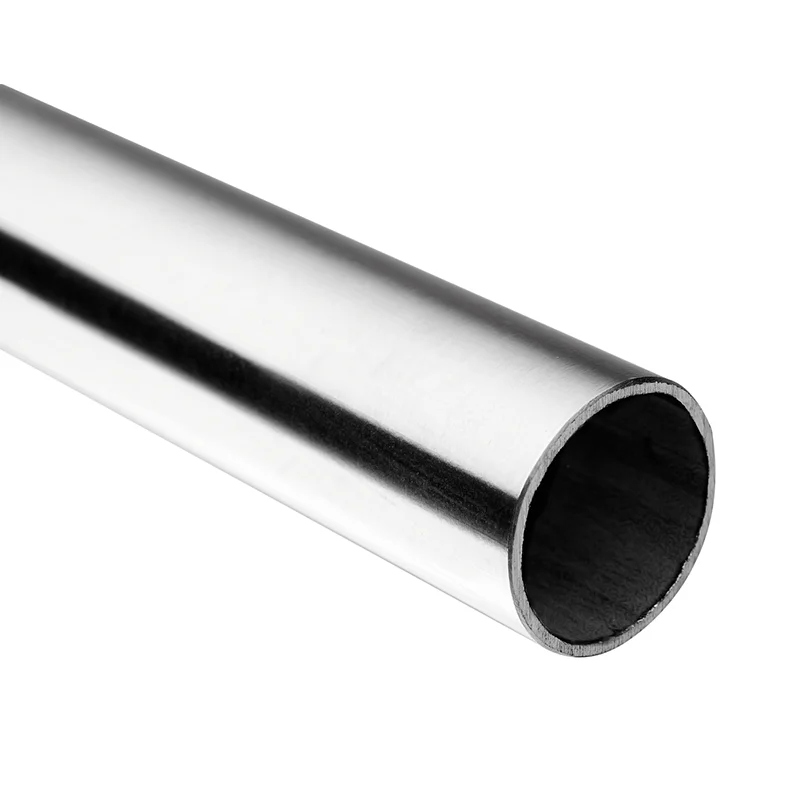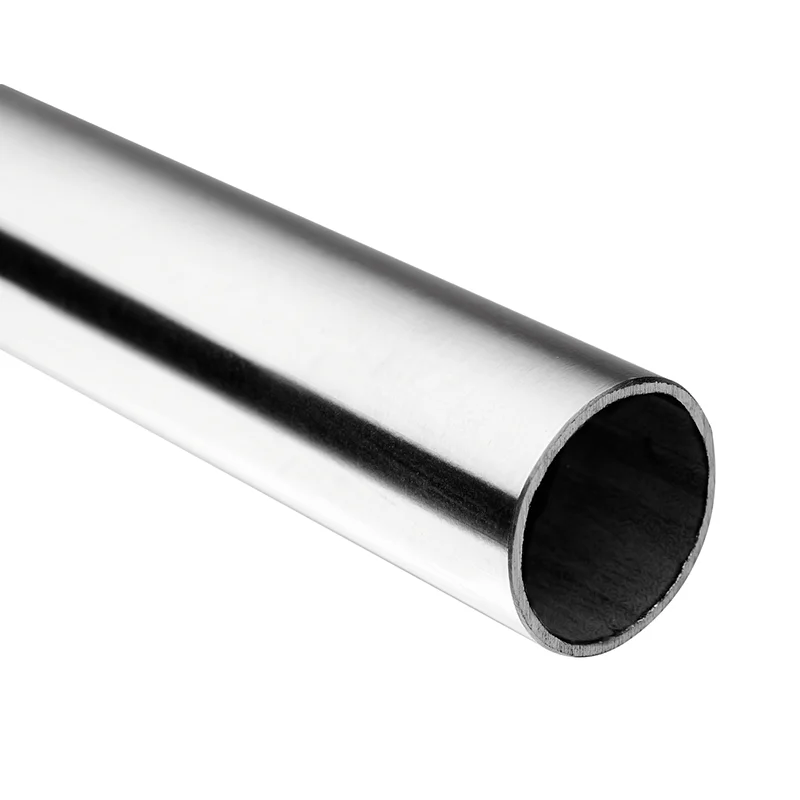Application of Stainless Steel Industrial Welded Pipes in the Chemical Industry
2025-06-23
Stainless steel welded pipes play a crucial role in the chemical industry due to their unique properties, such as corrosion resistance, strength, durability, and ability to withstand high temperatures. These characteristics make them ideal for a wide range of applications, from transporting aggressive chemicals to constructing pipelines and machinery for various chemical processes. The following essay delves into the importance and applications of stainless steel welded pipes in the chemical industry.
1. Corrosion Resistance
One of the primary reasons for using stainless steel welded pipes in the chemical industry is their exceptional resistance to corrosion. Chemical processes often involve the use of aggressive substances such as acids, bases, solvents, and corrosive gases, which can rapidly degrade materials like carbon steel or other metals. Stainless steel, with its high chromium content (typically 10% or more), forms a passive oxide layer that protects the surface from corrosion, even in harsh environments. This property makes stainless steel an ideal material for handling aggressive chemicals without the risk of contamination or pipe degradation.
In the chemical industry, stainless steel welded pipes are widely used in:
Pipelines for transporting chemicals: Their ability to resist corrosion extends the lifespan of pipes, reducing maintenance costs and downtime.
Storage tanks and reactors: Stainless steel is commonly used in the construction of tanks and reactors that store or process corrosive chemicals.
2. Durability and Strength
Stainless steel welded pipes exhibit high mechanical strength and durability, which is critical in industrial environments where the pipes are subjected to high pressures and stresses. In the chemical industry, high-strength materials are needed to ensure that pipelines and structures remain intact under the weight and pressure of various chemicals and gases. Stainless steel welded pipes can withstand both internal and external pressures without failure, ensuring the safety and reliability of the systems in which they are used.
The strength of stainless steel welded pipes makes them suitable for:
High-pressure applications: Stainless steel welded pipes are used in systems that transport chemicals under high pressure, such as in petrochemical plants and power stations.
Structural integrity: In chemical plants, stainless steel pipes provide structural support for other systems and equipment, maintaining the overall stability of the facility.

3. Temperature Resistance
In the chemical industry, many processes involve high temperatures that could compromise the integrity of lesser materials. Stainless steel welded pipes are well-suited for environments where high temperatures are common, such as in heat exchangers, boilers, and reaction vessels. Stainless steel maintains its strength and shape even under extreme heat, ensuring the pipes’ continued effectiveness in transporting chemicals or serving as a critical component in industrial processes.
Applications requiring temperature-resistant stainless steel welded pipes include:
Heat exchangers: Stainless steel welded pipes are commonly used in the construction of heat exchangers, where they can handle both high-temperature fluids and corrosive substances.
Thermal reactors: In chemical processes that involve high temperatures, such as those found in refineries or chemical synthesis, stainless steel welded pipes ensure safe transport and containment of fluids at elevated temperatures.
4. Hygienic Applications in Chemical Processing
The chemical industry also involves applications where hygiene and purity are essential, such as in the food and pharmaceutical sectors. Stainless steel’s smooth surface helps prevent bacterial growth and reduces the risk of contamination, making it a preferred material in these applications. The non-porous nature of stainless steel welded pipes ensures that they can maintain the integrity and purity of chemical substances during transport and processing.
For example, in pharmaceutical plants or in the food processing industry:
Sterile environments: Stainless steel welded pipes are employed in sterilized chemical pipelines and processing equipment where contamination must be minimized.
Regulated industries: The food and beverage industry, which requires strict sanitation standards, relies on stainless steel welded pipes to comply with safety and quality regulations.

5. Sustainability and Recyclability
Stainless steel is highly sustainable due to its recyclability, an important factor in the modern chemical industry, which is increasingly focusing on sustainability. Stainless steel welded pipes can be recycled without losing any of their properties, making them an eco-friendly option. As industries move toward more sustainable practices, using stainless steel welded pipes reduces the need for raw materials, contributing to a circular economy.
The chemical industry benefits from stainless steel welded pipes' sustainability in the following ways:
Reduced environmental footprint: By using recyclable materials, the chemical industry can lower its carbon footprint and contribute to resource conservation.
Compliance with environmental regulations: The use of recyclable, non-toxic materials helps chemical plants meet environmental standards and sustainability goals.
6. Versatility in Chemical Processes
Stainless steel welded pipes are not only used for the transportation of chemicals but also for a variety of other applications within the chemical industry. Their ability to be customized in terms of size, thickness, and other parameters makes them suitable for use in diverse chemical processing systems. Whether in the production of specialty chemicals, fertilizers, or plastics, stainless steel welded pipes are adaptable to different configurations and requirements.
Some common applications in chemical processing include:
Transporting hazardous chemicals: For chemicals like chlorine, hydrochloric acid, and sulfuric acid, stainless steel welded pipes ensure safe and secure transportation.
Flow control systems: Stainless steel welded pipes are also used in flow control systems for chemical processes, ensuring the proper regulation and monitoring of substances.
Conclusion
Stainless steel welded pipes are indispensable in the chemical industry, offering a range of benefits, including corrosion resistance, durability, temperature and pressure resistance, and sustainability. Their application spans across various sectors of the chemical industry, from manufacturing plants to storage facilities, making them an essential material in ensuring the safe and efficient transport and processing of chemicals. As industries evolve and demand more sustainable solutions, the importance of stainless steel welded pipes in the chemical industry will continue to grow, cementing their role as a cornerstone of modern industrial processes.
As a professional manufacturer and supplier, we provide high-quality products. If you are interested in our products or have any questions, please feel free to contact us.


